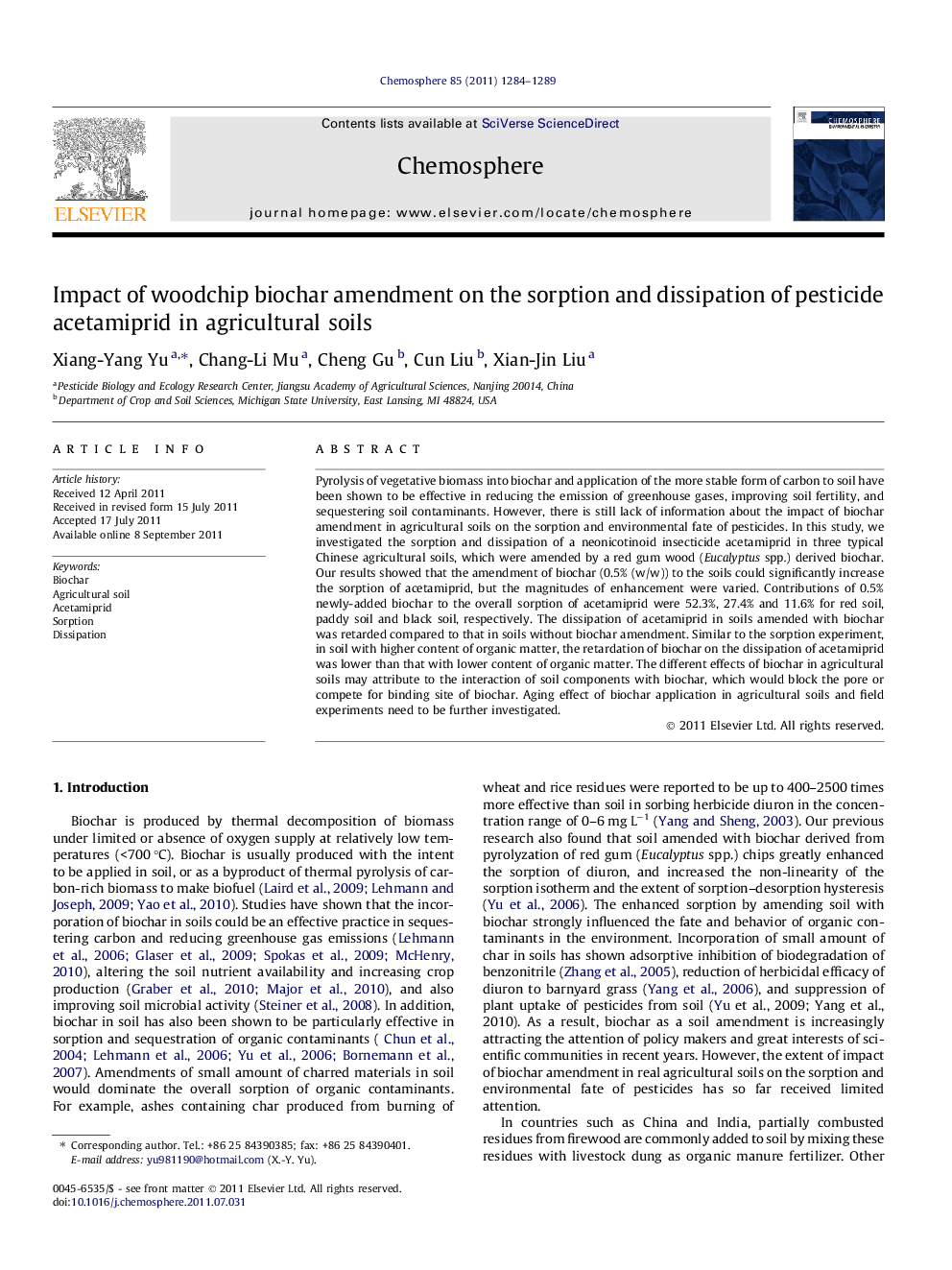| Article ID | Journal | Published Year | Pages | File Type |
|---|---|---|---|---|
| 4410117 | Chemosphere | 2011 | 6 Pages |
Pyrolysis of vegetative biomass into biochar and application of the more stable form of carbon to soil have been shown to be effective in reducing the emission of greenhouse gases, improving soil fertility, and sequestering soil contaminants. However, there is still lack of information about the impact of biochar amendment in agricultural soils on the sorption and environmental fate of pesticides. In this study, we investigated the sorption and dissipation of a neonicotinoid insecticide acetamiprid in three typical Chinese agricultural soils, which were amended by a red gum wood (Eucalyptus spp.) derived biochar. Our results showed that the amendment of biochar (0.5% (w/w)) to the soils could significantly increase the sorption of acetamiprid, but the magnitudes of enhancement were varied. Contributions of 0.5% newly-added biochar to the overall sorption of acetamiprid were 52.3%, 27.4% and 11.6% for red soil, paddy soil and black soil, respectively. The dissipation of acetamiprid in soils amended with biochar was retarded compared to that in soils without biochar amendment. Similar to the sorption experiment, in soil with higher content of organic matter, the retardation of biochar on the dissipation of acetamiprid was lower than that with lower content of organic matter. The different effects of biochar in agricultural soils may attribute to the interaction of soil components with biochar, which would block the pore or compete for binding site of biochar. Aging effect of biochar application in agricultural soils and field experiments need to be further investigated.
► Amendment of biochar in soils increase the sorption capacity for pesticide. ► Addition of biochar retards the dissipation of pesticide in soil. ► The impact of biochar addition varied among different soils.
